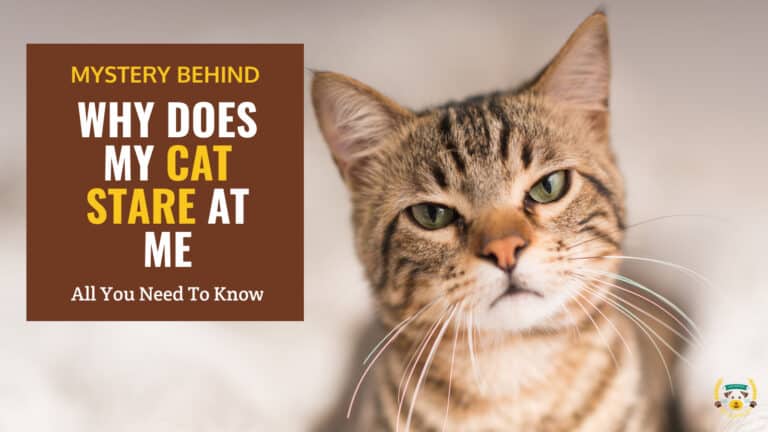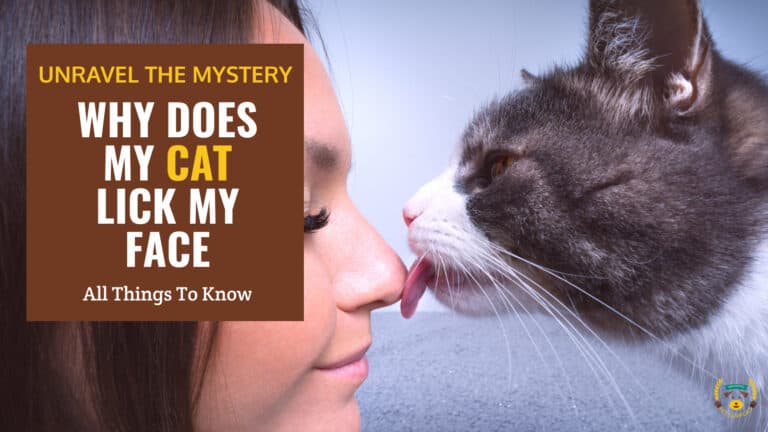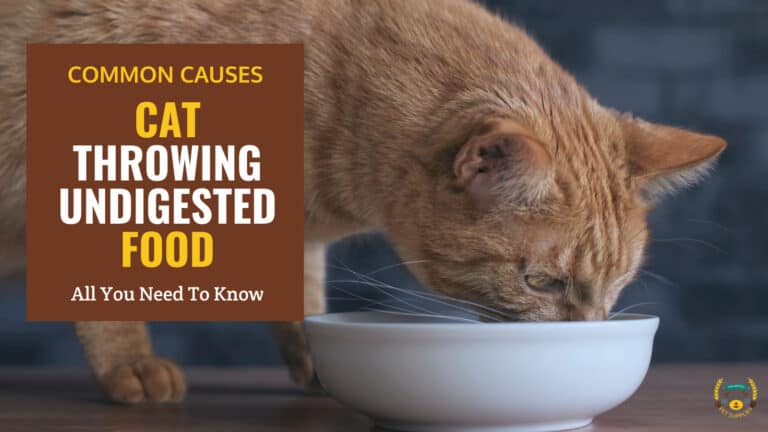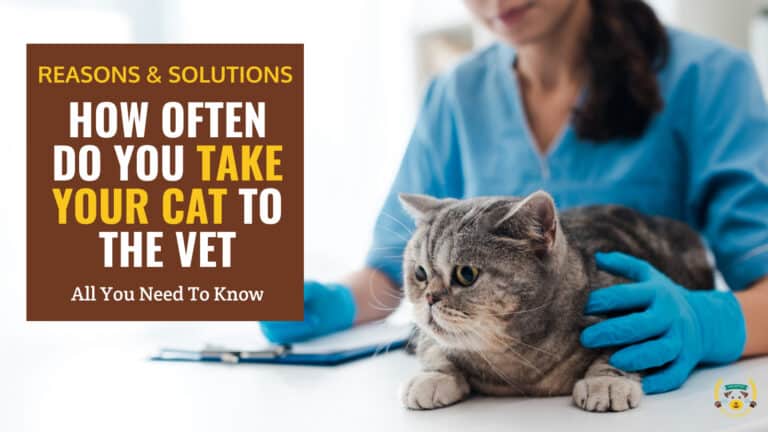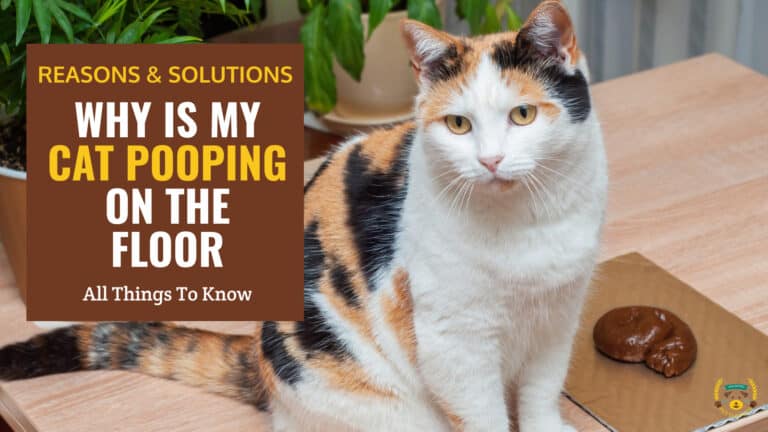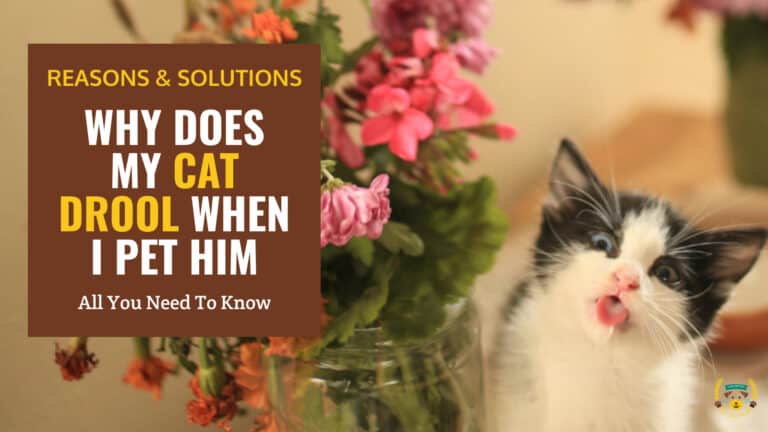How Long Does a Cat Hold a Grudge? + 10 Ways to Apologize to A Cat
Last updated: March 22, 2024
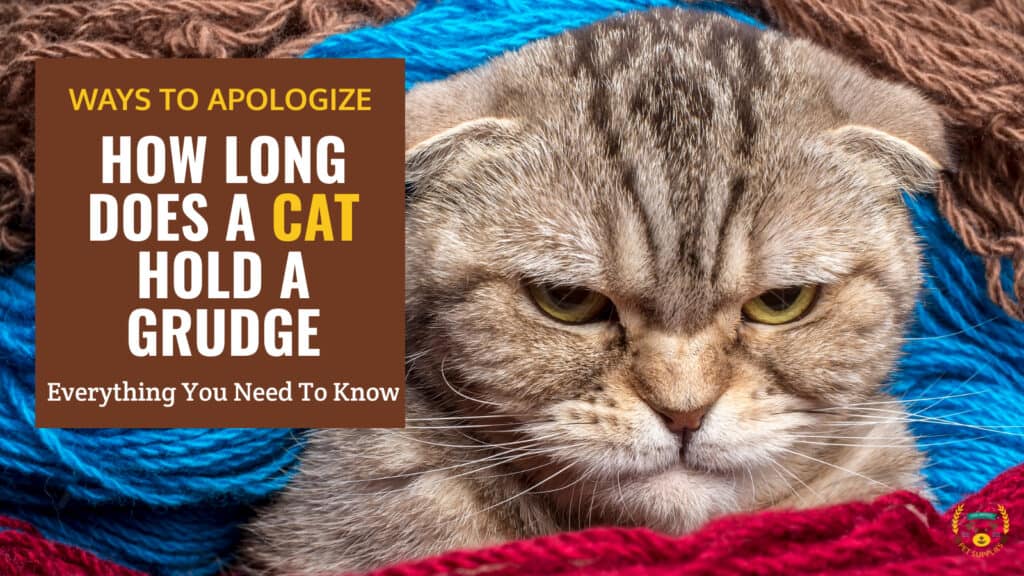
Summary
- Cats hold grudges, but shorter than you think.
- Signs: body language changes, avoidance, aggression.
- Grudge length depends on offense, personality, and bond.
- Mend fences with space, treats, play, petting, calming environment, or new toys.
- Strong bond prevents grudges: understand needs, consistent routine, playtime.
Cats are complex creatures with a wide range of emotions, and they can hold grudges when they feel slighted or injured.
Unlike dogs, cats are more discerning and may exhibit changes in behavior, such as avoiding interaction or lashing out, when harboring negative feelings.
As responsible cat owners, it's crucial to recognize and address your cat's emotions to maintain a strong bond and prevent long-term behavioral issues. By understanding the signs of a feline grudge and learning how to apologize and rebuild trust, you can create a harmonious household and a fulfilling relationship with your cat.
In this article, we'll explore the factors influencing a cat's grudge-holding behavior, the signs to look out for, and the steps you can take to mend your bond.
- 1) Factors Influencing a Cat's Grudge-Holding Behavior
- 2) Signs That Your Cat Might Be Holding a Grudge
- 3) The Duration of a Cat's Grudge: How Long Can They Stay Mad?
-
4)
10 Ways to Apologize to Your Cat and Mend Your Relationship
- 4.1) 1. Give Them Space: Respecting Your Cat's Need for Alone Time
- 4.2) 2. Offer High-Value Treats and Food: The Way to a Cat's Heart
- 4.3) 3. Engage in Play and Interactive Toys: Rebuilding the Bond
- 4.4) 4. Provide Extra Affection and Gentle Petting (When They're Ready)
- 4.5) 5. Create a Calming Environment: Soothing Sounds and Scents
- 4.6) 6. Introduce New Scratching Posts or Climbing Structures as a Peace Offering
- 4.7) 7. Spend Quality Time Together: Sitting Quietly and Bonding
- 4.8) 8. Respect Their Boundaries: Learning to Read Your Cat's Cues
- 4.9) 9. Be Patient and Consistent in Your Apology Efforts
- 4.10) 10. Consider Professional Help for Severe Cases: Consulting with a Veterinarian or Feline Behaviorist
- 5) Preventing Future Grudges: Building a Harmonious Relationship with Your Cat
-
6)
Frequently Asked Questions
- 6.1) How can I tell if my cat is holding a grudge or just having a bad day?
- 6.2) Can cats forgive and forget, or do they always remember negative experiences?
- 6.3) Is it possible for a cat to hold a grudge against another pet in the household?
- 6.4) Can cat grudges lead to long-term behavioral issues if left unaddressed?
- 6.5) Are certain cat breeds more prone to holding grudges than others?
- 7) Final Thoughts
Factors Influencing a Cat's Grudge-Holding Behavior
Let's start by exploring some of the factors that can affect your cat's grudge-holding behavior.
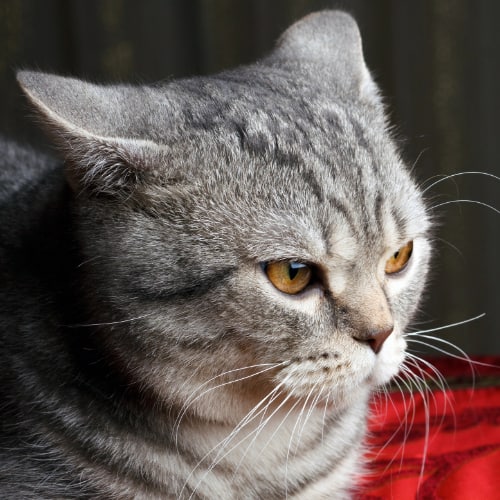
The Severity of the Offense: Minor Slights vs. Major Betrayals
Not all offenses are equal in the eyes of your feline friend. A minor slight, such as accidentally bumping into them or interrupting their nap, may result in a short-lived grudge that dissipates quickly. However, major betrayals, like forgetting to feed them or taking them to the vet for a painful procedure, can lead to longer-lasting resentment.
Consider the gravity of your actions from your cat's perspective. What might seem trivial to you could be a significant source of stress or discomfort for them. By recognizing the severity of the offense, you can better understand your cat's reaction and take appropriate steps to make amends.
Your Cat's Individual Personality and Temperament
Just like humans, cats have distinct personalities that influence how they react to perceived slights. Some cats are more easygoing and forgiving, while others are prone to holding grudges for extended periods. Pay attention to your cat's temperament and how they typically respond to stressful situations.
If your cat is generally relaxed and tolerant, they may be more likely to forgive and forget minor offenses. On the other hand, if your feline companion is easily agitated or sensitive to change, they may be more inclined to harbor resentment. Understanding your cat's unique personality will help you navigate their emotional landscape and tailor your apology strategies accordingly.
The Strength of Your Bond with Your Feline Companion
The depth of your bond with your cat plays a significant role in their willingness to forgive and move past a grudge. A strong, loving relationship built on trust and positive experiences can act as a buffer against the occasional misstep or unintentional slight.
If you have consistently provided your cat with a safe, nurturing environment and have a history of meeting their needs, they may be more forgiving when you make a mistake. On the other hand, if your relationship is strained or lacks trust, your cat may be more likely to hold onto negative feelings and exhibit grudge-holding behavior.
Investing time and effort into strengthening your bond with your cat can make a world of difference in their ability to forgive and forget. Engage in regular playtime, provide plenty of affection, and create a stable, predictable routine to foster a deep, resilient connection with your feline friend.
Signs That Your Cat Might Be Holding a Grudge
Now, how to see if your cat is holding a grudge? Try the following tips:

Changes in Body Language and Behavior
Your cat's body language speaks volumes about their emotional state. If they're holding a grudge, you may notice subtle changes in their posture, facial expressions and overall demeanor. A disgruntled cat may flatten their ears, twitch their tail aggressively or avoid eye contact with you. They might also refuse to engage in their usual playful antics or ignore your attempts to interact with them.
Pay close attention to these nonverbal cues, as they can be early indicators of your cat's displeasure. By recognizing these signs, you can address the issue before it escalates into a full-blown grudge.
Avoidance and Hiding: When Your Cat Gives You the Cold Shoulder
One of the most apparent signs that your cat is holding a grudge is when they actively avoid your presence. If your usually affectionate feline friend suddenly starts hiding under the bed or in a secluded corner of the house, it could be a red flag. They may also give you the cold shoulder by turning their back on you or walking away when you approach them.
This avoidance behavior is your cat's way of expressing their discontent and need for space. Respect their boundaries and give them time to process their emotions. Forcing interaction or invading their personal space may only exacerbate the situation and prolong the grudge.
Aggression and Lashing Out: Dealing with an Angry Feline
In some cases, a cat's grudge can manifest as aggressive behavior. An angry cat may hiss, growl, or even swat at you when you attempt to pet or interact with them. This is particularly true if the offense that caused the grudge was severe or if your cat is generally more prone to aggressive reactions.
If your cat lashes out, it's crucial to remain calm and avoid any physical retaliation. Punishing your cat for their aggressive behavior will only damage your relationship further and intensify their grudge. Instead, give them space and time to cool off. Once they've settled, approach them cautiously and offer a peace offering, such as a favorite treat or toy.
Remember, aggression is often a sign of underlying stress or anxiety. If your cat's aggressive behavior persists or becomes a recurring issue, consult with a veterinarian or feline behaviorist to rule out any medical or psychological concerns.
The Duration of a Cat's Grudge: How Long Can They Stay Mad?
The duration of your cat's grudge can vary, depending on multiple factors.
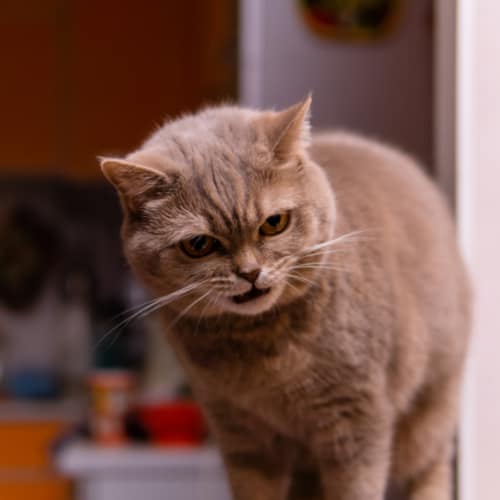
Short-Term Grudges: When Your Cat's Anger Fizzles Out Quickly
Some felines have a short fuse, but their anger dissipates just as quickly as it flared up. If you've accidentally stepped on your cat's tail or forgotten to clean their litter box, they might give you the cold shoulder for a few hours or a day at most. These short-term grudges are usually easier to resolve with a sincere apology and some extra TLC.
However, don't mistake a short-term grudge for a free pass to repeat the offense. Consistently slighting your cat, even in minor ways, can erode their trust and lead to longer-lasting resentment.
Long-Term Resentment: Dealing with a Persistently Upset Kitty
On the other end of the spectrum, some cats can hold a grudge for days, weeks, or even months. This is more likely to happen when the offense is severe or traumatic, such as a painful veterinary procedure or a significant change in their environment. Long-term grudges can be challenging to resolve and may require a combination of patience, consistency, and professional guidance.
If your cat seems to be holding onto a grudge for an extended period, it's crucial to rule out any underlying medical issues that may be contributing to their behavior. Consult with your veterinarian to ensure your cat isn't expressing their discomfort or pain through grudge-holding behavior.
Factors That Can Prolong or Shorten Your Cat's Grudge
Several factors can influence the duration of your cat's grudge:
- The severity of the offense
- Your cat's individual personality and temperament
- The strength of your bond with your cat
- Your cat's overall stress levels and environment
- The consistency and effectiveness of your apology efforts
10 Ways to Apologize to Your Cat and Mend Your Relationship
The following are tips and advice to help you apologize to your cat and fix any issues that might be causing a grudge.
1. Give Them Space: Respecting Your Cat's Need for Alone Time
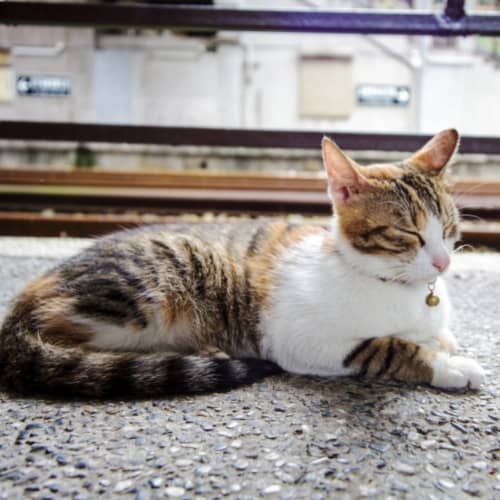
When your cat is holding a grudge, one of the best things you can do is give them space. Don't force interaction or try to smother them with affection.
Let your cat come to you on their own terms. This shows respect for their boundaries and allows them to process their emotions at their own pace.
2. Offer High-Value Treats and Food: The Way to a Cat's Heart
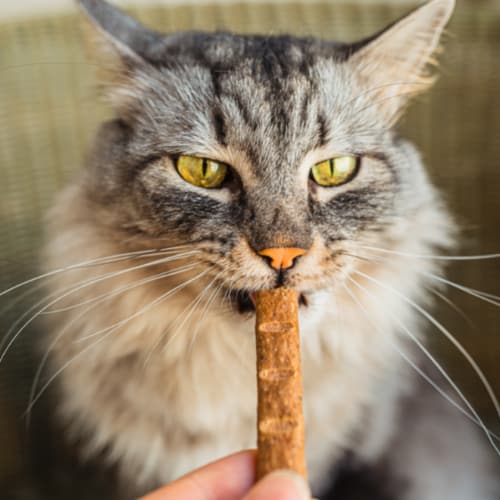
They say the way to a man's heart is through his stomach, and the same can be said for cats. Offering your feline friend their favorite treats or a special meal can help smooth things over.
Just be sure not to overdo it, as bribery can backfire and lead to unhealthy habits.
3. Engage in Play and Interactive Toys: Rebuilding the Bond
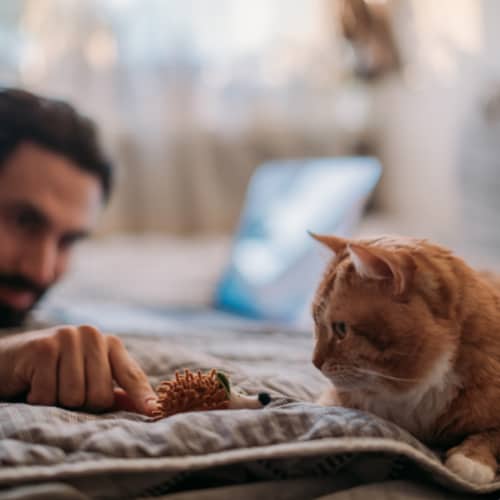
Play is a powerful bonding tool for cats and their humans. When your cat is ready, try engaging them with their favorite interactive toys, such as laser pointers, feather wands, or puzzle feeders.
Play not only helps rebuild your bond but also provides mental stimulation and physical exercise for your cat.
If you need help choosing a toy for your cat, check out our reviews of electronic cat toys.
4. Provide Extra Affection and Gentle Petting (When They're Ready)

Once your cat starts to come around, show them extra affection through gentle petting and cuddles. Focus on their favorite spots, such as behind the ears or under the chin.
Remember to let your cat initiate and control the interaction, and always respect their signals if they've had enough.
5. Create a Calming Environment: Soothing Sounds and Scents
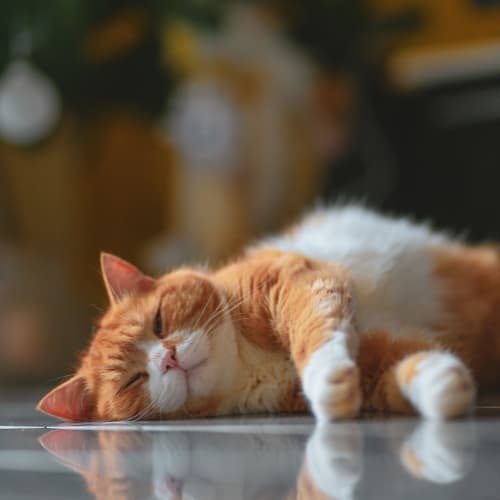
Creating a calming environment can help your cat feel more at ease and receptive to your apology efforts.
Try playing soft, soothing music or using pheromone diffusers to promote relaxation. You can also incorporate calming scents, such as lavender or chamomile, through essential oils or fresh herbs.
6. Introduce New Scratching Posts or Climbing Structures as a Peace Offering
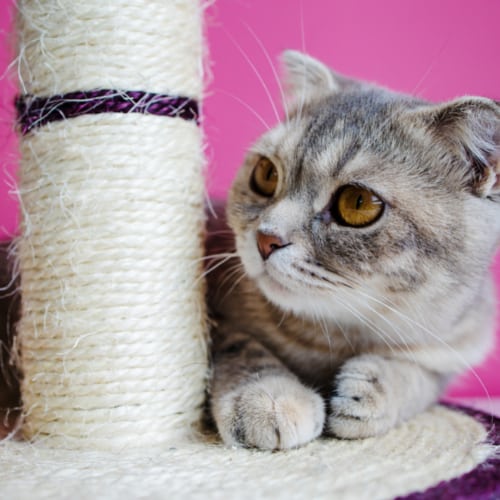
Cats love to scratch and climb, and offering new scratching posts or climbing structures can serve as a peace offering.
This not only provides your cat with an outlet for their natural behaviors but also shows that you understand and care about their needs.
7. Spend Quality Time Together: Sitting Quietly and Bonding
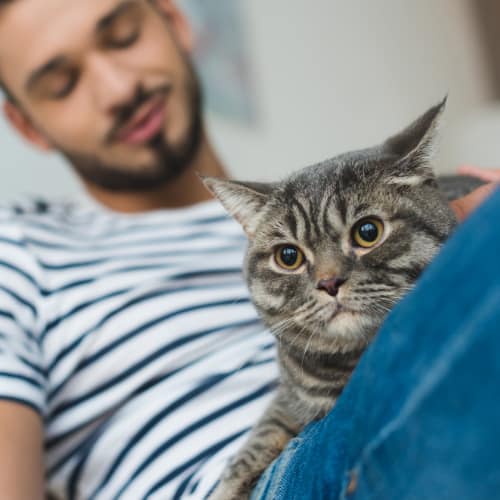
Sometimes, the best way to apologize to your cat is simply by spending quality time together. Sit quietly near your cat, reading a book or working on your laptop.
Let them approach you on their own terms, and cherish the moments of peaceful coexistence.
8. Respect Their Boundaries: Learning to Read Your Cat's Cues

As you work to mend your relationship with your cat, it's crucial to respect their boundaries. Pay attention to their body language and cues, and don't push them beyond their comfort zone.
If your cat walks away or shows signs of displeasure, give them space and try again later.
9. Be Patient and Consistent in Your Apology Efforts
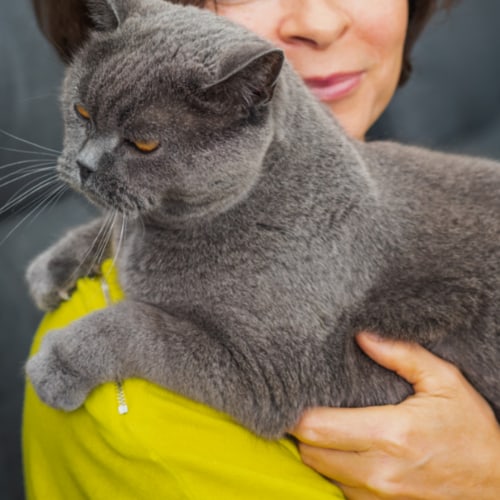
Apologizing to a cat and rebuilding your bond takes time and patience. Don't expect immediate forgiveness or a return to normal behavior overnight. Stay consistent in your efforts, and celebrate the small victories along the way.
10. Consider Professional Help for Severe Cases: Consulting with a Veterinarian or Feline Behaviorist
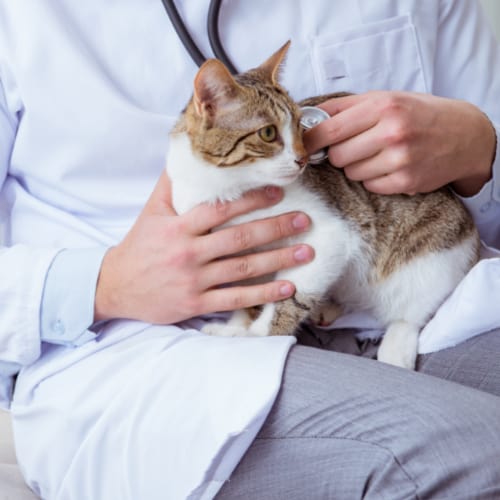
If your cat's grudge seems particularly severe or long-lasting, don't hesitate to seek professional help. Consult with your veterinarian to rule out any underlying medical issues, and consider working with a feline behaviorist to develop a tailored plan for mending your relationship.
Determining the frequency of vet visits is also crucial in building a positive association with veterinary care. A consistent checkup schedule established early on can help prevent negative experiences and ensure your cat receives the necessary preventive care throughout their life. For a comprehensive guide on developing a vet visit routine for your cat, see our article on how often should you take your cat to the vet.
Preventing Future Grudges: Building a Harmonious Relationship with Your Cat
Learning to avoid grudges in the future is the key to a better relationship with your feline friend.
Understanding Your Cat's Needs and Preferences
The foundation of a harmonious relationship with your cat lies in understanding their individual needs and preferences.
Take the time to observe your cat's behavior and reactions to different situations. Some cats crave constant attention and affection, while others prefer a more independent lifestyle.
By tailoring your approach to your cat's unique personality, you can create an environment that meets their needs and reduces the likelihood of future grudges.
Consistency in Care and Routine: Providing Stability and Security
Cats thrive on consistency and predictability. Establishing a regular routine for feeding, playtime, and grooming can help your feline friend feel secure and content.
When your cat knows what to expect from day to day, they are less likely to experience stress or anxiety that can lead to grudge-holding behavior. If changes to their routine are necessary, introduce them gradually to minimize disruption and potential resentment.
Regular Playtime and Interaction: Strengthening Your Bond

Engaging in regular playtime and interaction with your cat is crucial for maintaining a strong, positive bond. Set aside dedicated time each day for interactive play sessions using toys that cater to your cat's hunting instincts, such as laser pointers or feather wands.
Not only does playtime provide mental stimulation and physical exercise, but it also serves as an opportunity for bonding and building trust between you and your feline companion.
Respecting Your Cat's Boundaries and Body Language
To prevent future grudges, it's essential to respect your cat's boundaries and pay attention to their body language. Cats communicate their comfort level and emotions through subtle signs, such as positioning, tail movements, and facial expressions.
If your cat shows signs of discomfort or displeasure, such as flattened ears, a twitching tail, or hissing, respect their boundaries and give them space. Pushing your cat beyond their comfort zone can lead to resentment and damage your relationship.
Frequently Asked Questions
It's time to provide answers to some commonly asked questions to make sure you are well-equipped to deal with any grudge-holding behavior from your feline friend.
How can I tell if my cat is holding a grudge or just having a bad day?
Distinguishing between a cat holding a grudge and simply having an off day can be tricky. Look for consistent changes in behavior, such as prolonged avoidance, hiding or aggression directed towards you or other family members.
If the behavior persists for more than a day or two, it's more likely that your cat is holding a grudge rather than just feeling temporarily out of sorts.
Can cats forgive and forget, or do they always remember negative experiences?
Cats, like many animals, have strong associative memories. They tend to remember negative experiences and the individuals or situations associated with them.
However, this doesn't mean that cats are incapable of forgiveness. With patience, understanding, and consistent positive interactions, you can help your cat move past a grudge and rebuild your bond.
Is it possible for a cat to hold a grudge against another pet in the household?
Yes, cats can hold grudges against other pets in the household, particularly if there has been a negative interaction or a perceived threat to their territory or resources.
Signs of a cat holding a grudge against another pet may include avoidance, hissing, growling, or even physical altercations.
In such cases, it's important to provide separate spaces, resources and plenty of positive reinforcement to help the cats coexist peacefully.
Can cat grudges lead to long-term behavioral issues if left unaddressed?
Unresolved cat grudges can lead to long-term behavioral issues, such as chronic stress, anxiety, or aggression. These issues can manifest in various ways, including inappropriate elimination, destructive scratching or even self-harming behaviors like excessive grooming.
If you suspect your cat's grudge is leading to persistent behavioral problems, consult with a veterinarian or feline behaviorist to develop an appropriate treatment plan.
Are certain cat breeds more prone to holding grudges than others?
While individual personality plays a significant role in a cat's tendency to hold grudges, some breeds are known for their more sensitive or independent nature, which may make them more prone to holding grudges.
For example, Siamese cats are often described as intelligent, vocal, and emotionally attuned, which could make them more likely to take offense and hold a grudge.
Still, it's essential to remember that every cat is unique, and their individual experiences and temperament will ultimately determine their reaction to perceived slights or offenses.
Final Thoughts
Understanding that cats can hold grudges and recognizing the signs of a disgruntled feline is crucial for addressing the issue and mending your bond. Ignoring your cat's grudge can lead to a breakdown in trust and long-term behavioral problems.
By acknowledging your cat's feelings and taking proactive steps to apologize and rebuild your relationship, you demonstrate your commitment to their emotional well-being.
We hope this guide provided everything you need to resolve any issues you might have with your cat, and that now you can have a stronger bond and avoid any future grudges. If you have any questions, please contact us.

